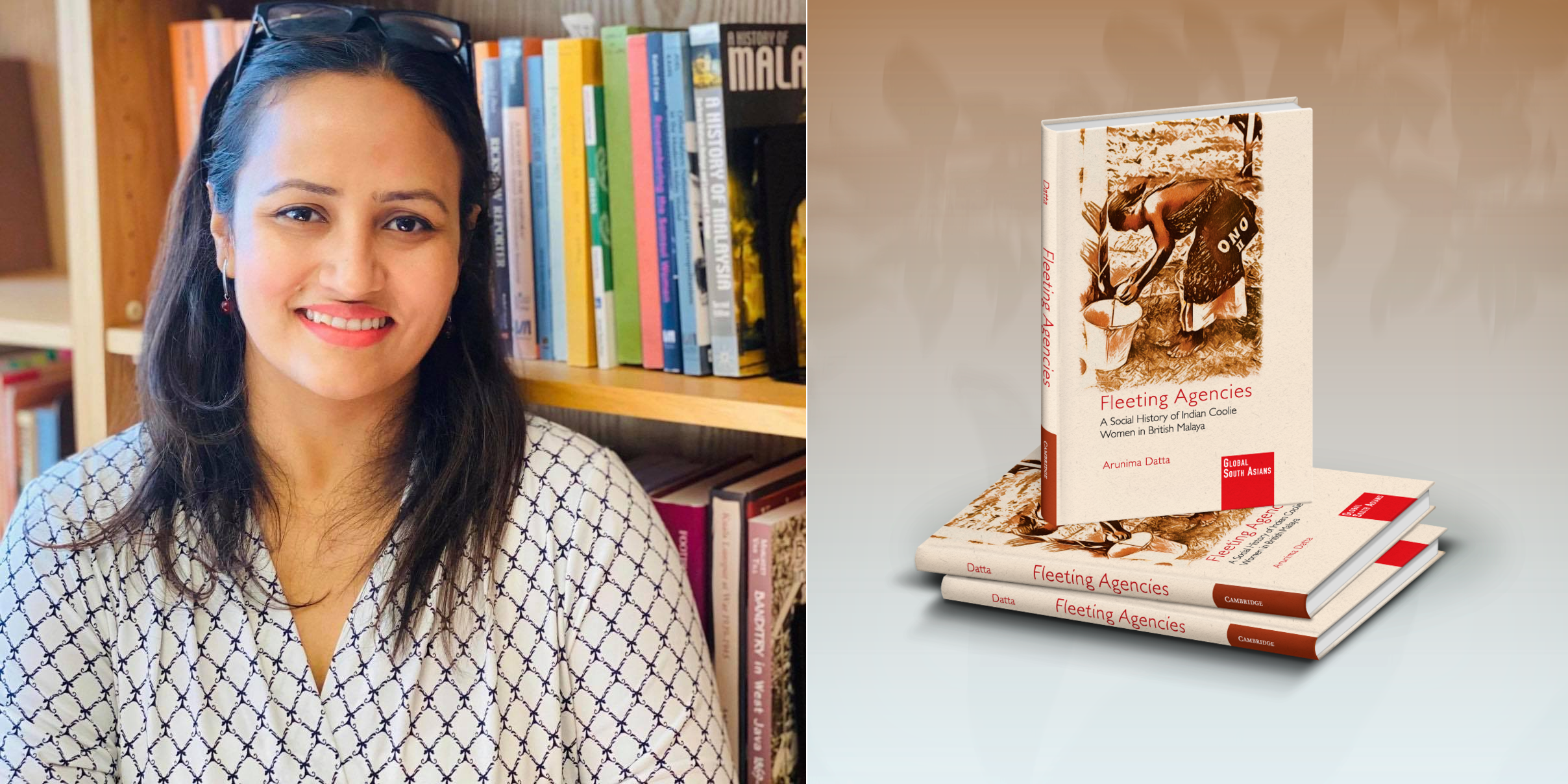Arunima Datta Publishes Book Exploring Forgotten Women’s History
March 15, 2021

For almost two hundred years, South Asian women labor migrants played a central role in the colonial plantation economies in which they lived and worked, all while navigating various tyrannical structures and relations. Yet their crucial history has largely gone unwritten and unacknowledged. A newly published book by assistant professor of history Dr. Arunima Datta seeks to change that.
“Fleeting Agencies: A Social History of Indian Coolie Women in British Malaya,” released this February by Cambridge University Press, is the first study of Indian coolie women in British Malaya.
“Even though these women were visibly involved in labor production and labor reproduction, they remained silenced. They remained forgotten and written out of history,” Datta said. “This troubled me as an incomplete history of not only Asia but also colonialism. What quickly became apparent is that women's history is critical to understanding labor, migration and colonial histories.”
The work of “unmuting” these silenced women, as Datta described, involved exploring archives in India, Malaysia, Singapore, the United Kingdom and the United States. Many historians and archivists warned her that the research was impossible, as records mentioning the Indian coolie women were scattered across multiple continents. Those records presented another challenge as well — written by people in power at the time, they withheld the voices of the women about whom Datta sought to learn. Taking a closer look at archival texts and placing them in context with alternative archives like photos, census reports, newspapers and oral histories, Datta caught glimpses of the women’s stories even in the documents that aimed to erase them.
“My book does more than merely add and stir women into colonial histories,” Datta said. “Rather, through the histories of these women, I was able to uncover the complex colonial relations between South Asia and Southeast Asia and explore the lesser-known histories of British imperialism and Asian nationalism.”
The histories that “Fleeting Agencies” reveals include gendered patterns of migration, the politicization of labor migration trends and gender relations in the colonial plantation society in British Malaya. The book also introduces the concepts of fleeting and situational agency, which help understand the complex nature of voice and choice of the Indian coolie women. In doing so, it also becomes a crucial tool for all fields of studies engaging with migration, gender history and subaltern studies.
“‘Fleeting Agencies’ is above all about those working-class migrant women whose agency and importance are yet to be acknowledged in the pages of history,” Datta said. “So this book is a reality but also a dream that more historians start engaging with women's history, gender history and migration history to uncover other important histories that remain unknown and silenced.”
Datta is currently working on her second book, which focuses on the history of Indian traveling ayahs, or nannies, in Britain. She received a research grant from the Idaho Humanities Council to support this work. Datta’s article, "Responses to traveling Indian ayahs in nineteenth and early twentieth century Britain" was recently published in the prestigious Journal of Historical Geography. Another recent article, "Knocker Ups: A Social History of Waking Up in Victorian Britain’s Industrial Towns," was recognized by the Journal of Victorian Culture as a 2020 editor’s choice article. Datta was recently appointed the associate editor of the journal Britain and the World and as chair of the Nupur Chaudhuri First Article Award committee of the Coordinating Council for Women in History.
Categories:
